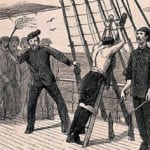 History
History  History
History  Health
Health 10 Everyday Activities That Secretly Alter Consciousness
 History
History Top 10 Historical Disasters Caused by Someone Calling in Sick
 Animals
Animals 10 New Shark Secrets That Recently Dropped
 Movies and TV
Movies and TV 10 Forgotten Realities of Early Live Television Broadcasts
 Technology
Technology 10 Stopgap Technologies That Became Industry Standards
 Weird Stuff
Weird Stuff 10 Wild Facts About Taxidermy That You Probably Didn’t Know
 Travel
Travel 10 Beautiful Travel Destinations (That Will Kill You)
 Miscellaneous
Miscellaneous 10 Modern Marriage Rituals Born from Corporate Branding
 Weird Stuff
Weird Stuff Ten Bizarre Visions of 2026 from Fiction
 History
History 10 “Modern” Problems with Surprising Historical Analogs
 Health
Health 10 Everyday Activities That Secretly Alter Consciousness
 History
History Top 10 Historical Disasters Caused by Someone Calling in Sick
Who's Behind Listverse?

Jamie Frater
Head Editor
Jamie founded Listverse due to an insatiable desire to share fascinating, obscure, and bizarre facts. He has been a guest speaker on numerous national radio and television stations and is a five time published author.
More About Us Animals
Animals 10 New Shark Secrets That Recently Dropped
 Movies and TV
Movies and TV 10 Forgotten Realities of Early Live Television Broadcasts
 Technology
Technology 10 Stopgap Technologies That Became Industry Standards
 Weird Stuff
Weird Stuff 10 Wild Facts About Taxidermy That You Probably Didn’t Know
 Travel
Travel 10 Beautiful Travel Destinations (That Will Kill You)
 Miscellaneous
Miscellaneous 10 Modern Marriage Rituals Born from Corporate Branding
 Weird Stuff
Weird Stuff Ten Bizarre Visions of 2026 from Fiction
10 Epic Tales From The Golden Age Of Pirates
They sailed to the Caribbean seeking fortune. Some were soldiers out of work, others were privileged thrill-seekers, and one was a poor sailor hoping to win his girlfriend’s hand in marriage. Yet of the world’s famous pirates mentioned below, all but one suffered a cruel death, whether hanging from the end of a rope, drowned at the bottom of the sea, or skewered on an Englishman’s blade.
10 The Pirate King And The Flying Gang
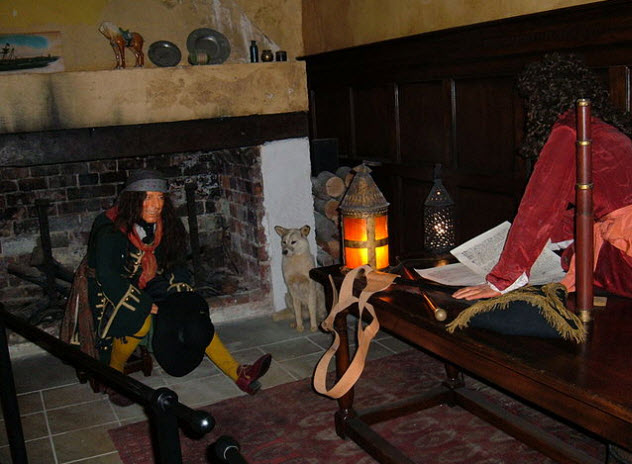
Benjamin Hornigold was an English privateer captain in the Caribbean who refused to give up the fight against the Spanish after the war had ended in 1713. Until then, the English Crown had given Hornigold permission to plunder enemy ships and sell the goods in Port Royal, Jamaica.
In 1715, Hornigold launched a raid on Spanish divers attempting to recover a treasure galleon. The raid was a major success, but when Hornigold tried to sell the booty in Jamaica, the governor turned him away. After the war, the British had gained access to Spain’s sugar, rum, and slave trade, which was enormously profitable. The Crown wanted all privateers to cease activities or be branded as pirates.
Hornigold found himself with no job, nowhere to trade, and a fleet of sailors to take care of. Rather than return the stolen goods, Hornigold turned to the black market. He and his mates had set up base in Nassau, a small port in the Bahamas.
Once Hornigold and his boys showed up, the local governor was powerless to stop them from bullying the population and taking over. They called themselves the “Flying Gang.” Once word spread of the fortunes these pirates were making, sailors and cutthroats from all over came to join them. They respected Hornigold as the “king” of this new pirate republic.
9 The Gentleman Pirate
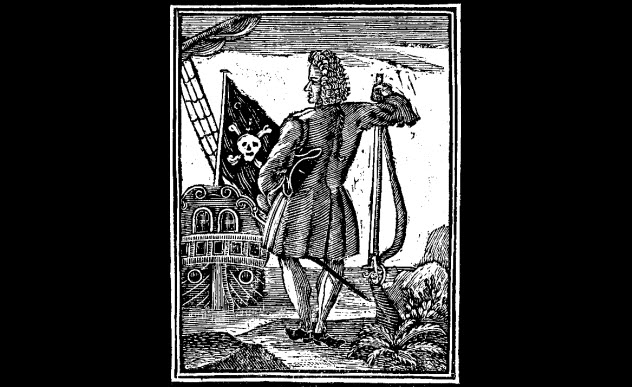
Stede Bonnet was a wealthy Barbadian landowner who lived off his inheritance. Annoyed by his nagging wife, he dreamed of becoming a pirate. Stede spared no expense in building himself a pirate ship, which he called The Revenge, a popular name for pirate ships at the time. He hired a crew, left his wife, and sailed for Nassau to join the Flying Gang.
Unfortunately for Stede, he quickly lost the respect of his crew because he knew nothing about navigation and sailing. After he was seriously wounded in a doomed encounter with a Spanish warship, he feared his crew was on the verge of mutiny and that he’d be unable to control them.
In Nassau, Stede met pirate king Benjamin Hornigold and his star apprentice, Edward Teach. Teach decided to take Stede under his wing on one condition: Stede had to give command of his wonderful, new pirate ship to Teach. Stede agreed and took command of Teach’s old ship.
Teach used fear and intimidation to take over ships with minimal loss of life and cargo. He would stick lit fuses in his hat to appear like the Devil to ships he was about to board. Eventually, he adopted the alias “Blackbeard” and became the terror of the sea.
However, Stede didn’t command the same sort of respect. When he blundered the capture of a merchant vessel, his crew abandoned him to join Blackbeard, who took pity on Stede and allowed him to stay aboard The Revenge as a guest.
8 The Prince Of Pirates
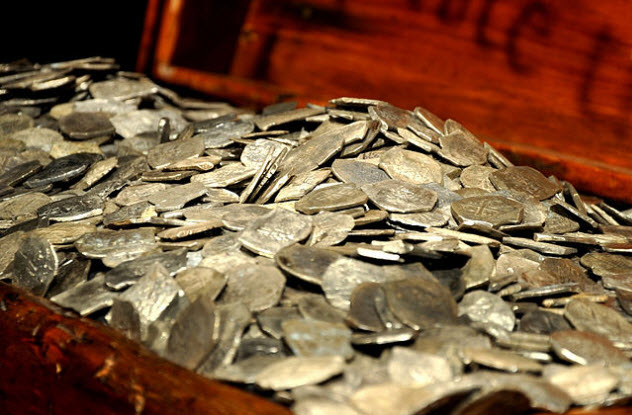
In 1715, Sam Bellamy, a poor sailor, met a rich farmer’s daughter named Mary Hallett in a tavern in Massachusetts. The two took an instant liking to each other and spent the night making love. Sam asked Mary’s parents for their daughter’s hand in marriage, but they refused to let their daughter marry a penniless sailor.
Determined to win Mary’s hand, Sam quit his job and sailed to the Caribbean to make a fortune. He became a treasure hunter but had no luck. So he joined the Flying Gang. Sam had a talent for piracy and caught the eye of Ben Hornigold, who was searching for a new protege after Blackbeard left to command his own ship.
Under Hornigold, Sam learned to become a masterful pirate. But he still hadn’t made enough money to claim Mary, and he was growing impatient. Hornigold refused to attack British and Dutch vessels, letting untold loot just sail by. Hornigold maintained that he was more of a vigilante privateer than an actual pirate. The crew was just as annoyed by this as Sam was.
In July 1716, the crew voted to remove Hornigold from command and make Sam Bellamy their captain. Hornigold was given a small ship so that he could return to Nassau, where he could still have some respect as the pirate king.
7 Robin Hood Of The Seas
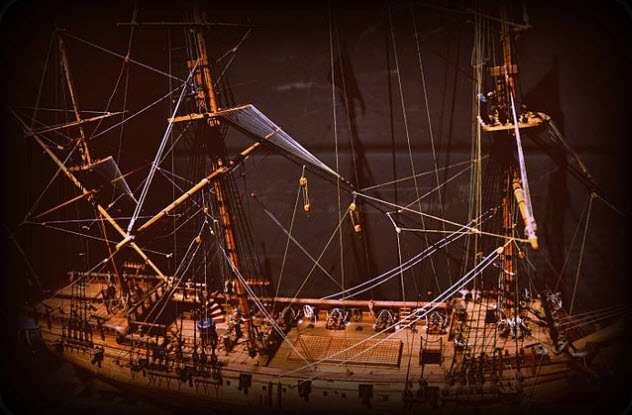
In a short time, Captain Sam Bellamy had become one of the most successful pirates in history. He called himself the “Robin Hood of the Seas” because he robbed from the rich merchants of all nations and gave to the poor sailors.
He had grown into a dashing figure. At a time when most elites wore powdered wigs, he tied his dark hair back with a satin bow. He wore a long velvet coat with a cutlass strapped to his waist and four guns tucked in his sash. “Black” Sam Bellamy was the pirate every sailor dreamed of becoming. Soon he had nearly 200 men in his fleet.
In 1717, Sam captured his greatest prize, The Whydah Galley. It was the most expensive and largest ship in the Caribbean, and Sam was now the richest pirate in history. At the helm of his new flagship, he set sail for Massachusetts to reunite with his beloved Mary. But it was never meant to be. A hurricane sank the Whydah, drowning Sam and all but 10 of his crew.
6 The Royal Pardon
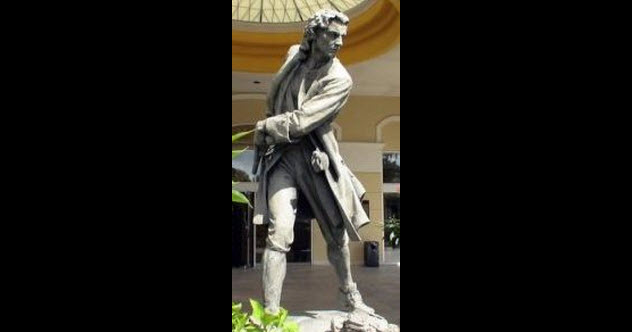
As Hornigold stewed in Nassau, word arrived that the Crown was sending a new governor to the Bahamas, one who would put an end to the pirates once and for all. His name was Woodes Rogers, and he was a former privateer like Hornigold. Rogers arrived with the British Navy at his back. They blockaded the Nassau harbor, allowing no one to leave.
As the pirates’ representative, Hornigold met with Rogers, who offered a deal that extended to all pirates: Turn yourself in by September 5, 1718, and all crimes of piracy will be forgiven. Refuse or renege on this deal and you will be hanged. For Hornigold, Rogers offered him the chance to serve the Crown again, this time as a pirate hunter.
Not only did Hornigold accept the pardon, he convinced many of his fellow pirates to accept it as well. Up in the Carolinas, Blackbeard ran his ship aground and received a pardon from the governor there, leaving Stede Bonnet to fend for himself because Bonnet refused to give up his dream of being a real pirate.
Like Bonnet, many pirates trapped in Nassau didn’t want the pardon. Chief among them was Charles Vane, a notoriously wicked pirate, and his quartermaster, Calico Jack. Vane and his mates needed to escape Nassau before they were hanged for refusing the pardon. They launched a flaming, exploding ship into the naval blockade and quietly sailed away in the chaos. Governor Rogers tasked Hornigold with hunting down Vane.
5 Pirate Hunters
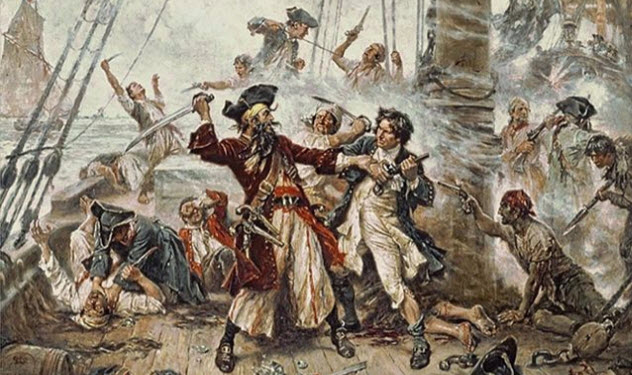
Hornigold had been stalking Vane for some time. But the strength of Vane’s fleet was too great for Hornigold to launch a sensible attack, even though he had captured some pirates who traded with Vane. In all, Hornigold returned 10 pirates to Governor Rogers and the gallows.
Rogers commended him but sent him out again to catch Vane. This would be Hornigold’s last expedition. A fierce storm sank his ship, and he was lost at sea, never to be heard from again.
Sailing to North Carolina to meet Blackbeard, Vane proposed that they team up to retake Nassau. But Blackbeard preferred to continue operating in the Carolinas, where the government had been looking the other way. The two captains and their crews spent days drinking and reveling before Vane departed. However, this debauchery drew the attention of the Virginia governor, who became nervous about having pirates nearby.
One night, when Blackbeard and his men were drunk, the governor sent the British navy to kill them all. A fierce battled ensued, and Blackbeard, on the verge of victory, boarded the British ship. But a swarm of British troops had been hiding in the holds, waiting for the perfect time to strike. They cut down Blackbeard, severed his head, and tied it to the mast.
4 Mutiny
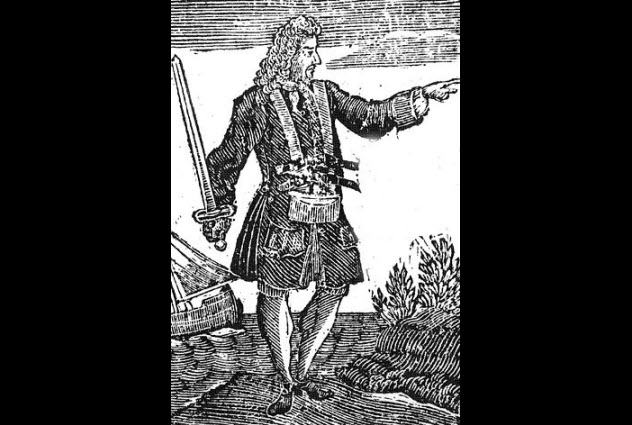
No one could outrun the British navy like Charles Vane. Elite pirate hunters couldn’t find him and had to settle for capturing Stede Bonnet instead. Unfortunately, Stede finally got the full pirate experience and was hanged.
But Vane really should have been worried about the men serving under him. He had a horrible reputation for abusing prisoners and underlings, and his men had grown tired of it. After Vane had refused to attack an intimidating French vessel, his quartermaster, Calico Jack Rackham, demanded that Vane be removed as captain for reasons of cowardice. The crew agreed and sent Vane out on a small sloop.
As the months passed, Vane worked on rebuilding his fleet. His plans were cut short when a hurricane blew his ship aground off the coast of Honduras. He was marooned on an island for several months before a passing ship rescued him. Vane tried to keep his identity a secret, but one of his former prisoners was on the ship and instantly recognized him. Vane was brought to Port Royal, tried, and hanged in November 1720.
3 A Bonny Lass
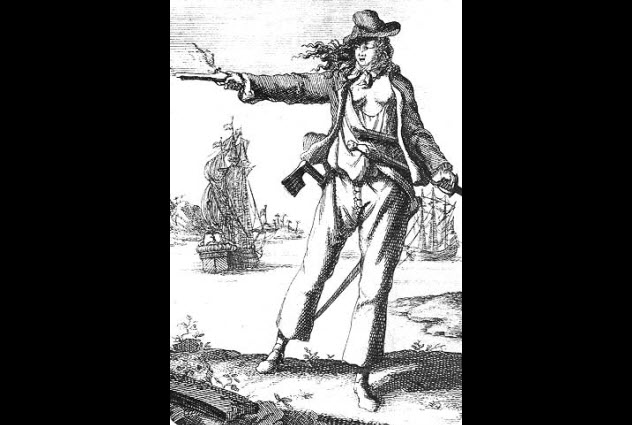
Anne Bonny was a fiery Irish woman who lived with her rich father in the Carolinas. Supposedly, she had stabbed a servant to death in a fit of rage. Anne married sailor-turned-pirate James Bonny, and the two of them traveled to the Bahamas in pursuit of infamy and fortune.
But when they arrived at Nassau, James chickened out and took the king’s pardon. James went to work for Governor Rogers, and a bored Anne grew to resent her husband. She spent her time drinking at the local tavern, where she met the colorful, drunken pirate Calico Jack Rackham.
Calico Jack had accepted the king’s pardon to escape capture. But he was stuck in Nassau and bored out of his jolly roger. Anne had caught Jack’s eye, and the two began a torrid affair. After Jack offered to pay James Bonny to release Anne from their marriage, James reported the infidelity to Governor Woodes Rogers.
Rogers ordered Anne to be returned to her husband and to be stripped and flogged in the public square for good measure. Anne and Jack stole a ship and fled Nassau, returning to life as pirates.
2 Lover’s Key

Anne Bonny was a fearsome pirate and a bullish fighter. During their honeymoon, she and Jack captured many ships and sold off the booty. When their mainmast was crippled in a battle against a Spanish sloop, the wind sent them drifting toward an island that would later be known as Lover’s Key.
The crew sailed inland, searching for lumber to repair the ship. Meanwhile, Jack and Anne stayed behind in Lover’s Key, sheltered by a hut made of sticks and palm leaves. By the time the ship was repaired, Anne was pregnant. But she didn’t want to give up pirating to raise a child. So after having a baby boy, Anne left her son with a retired pirate couple in Cuba.
Soon after, Anne and Jack captured a Dutch ship and forced a number of the Dutch crew to sign on as pirates. Among them was a tomboy by the name of Mary Read who could wield a cutlass as well as Anne. The two women formed a strong friendship, which made Jack more than a little jealous.
1 Calico Coward

While hiding out in Nassau, Calico Jack, Anne Bonny, and Mary Read stole the fastest sloop in the Bahamas and sailed away. Governor Rogers had grown tired of their antics and dispatched famed pirate hunter Captain Barnet to chase them down.
To celebrate capturing yet another ship, Jack and the boys got smashingly drunk, but Anne and Mary were wary of having Barnet on their tail. When Barnet caught up to them and lay aboard, the drunken men hid in the cargo while Anne and Mary fought the pirate hunters on deck.
Anne was so enraged at Jack’s cowardice that she fired a bullet into the cargo hold and yelled, “If there’s a man among ye, ye’ll come out and fight like the men you are thought to be!”
But the men stayed inside. Anne and Mary were overwhelmed and beaten down. Jack and the rest of the crew surrendered when the pirate hunters found them in the hold.
+ The Gallows

Calico Jack and his men were tried and sentenced to hang on November 16, 1720. While in prison, Anne saw Jack one last time and said to him, “I am sorry to see you here, Jack, but if you had fought like a man, you needn’t hang like a dog.” Jack was hanged and his rotting corpse displayed in a gibbet near Port Royal in a place called Dead Man’s Cay.
Anne and Mary had received a trial separate from the boys. Though they were convicted, they both claimed to be pregnant, which forced the prosecutors to give them stays of execution. At the time, it was illegal to make an unborn child pay for the crimes of the mother.
In April 1721, Mary died of fever in her prison cell. Anne was lost to history. There was no record of her execution, death, or release. There was no known evidence of her escape. A popular theory is that her wealthy father had used his influence to quietly buy her freedom. Afterward, she supposedly returned with him to Charles Town, South Carolina, where she remarried and had children.
For more of Matt’s narrative history lists, check out “10 Steps in the Rise of the Aztec Empire” and “10 Fateful Moments in the Fall of the Han Dynasty.” To see all of his lists, visit his blog.







